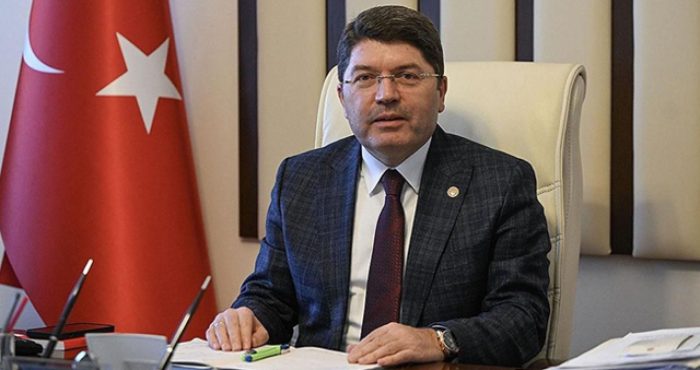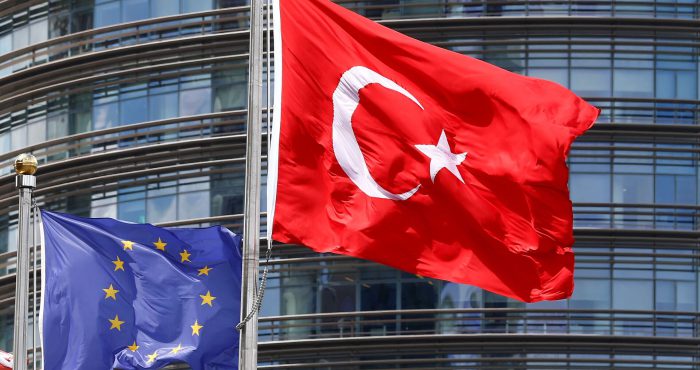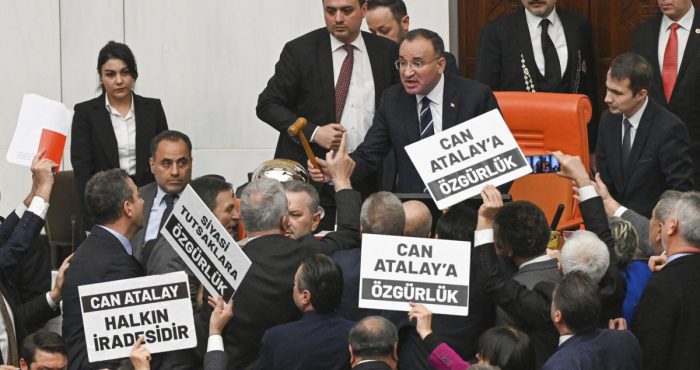In Annex 1 of Central Bank circular “Regulating the Issues and Principles regarding the Repatriation of Export Proceeds,” upon the instruction of the Ministry of Treasury and Finance, export foreign currency was obliged to be sold to the bank at a rate determined by the bank—25% as of 3 January 2022 according to an instruction dated 31 December 2021, then 40% as of 18 April 2022 according to an instruction dated 14 April 2022. In light of this situation, the business world, which relies on imports for about 70% of its turnover, is distrustful of the economic management of the Central Bank, angry, and confused. Questions about the rationale behind and authorization for this decision are growing louder in the economic lobbies.
The business world, which seemed to have agreed to the situation by not objecting when the obligation to sell 25% of export foreign currency was first introduced, is very disturbed by the increase of this ratio to 40%. Representatives of business have been knocking on official doors in Ankara, begging the Ministry of Treasury and Finance and other relevant parties to revoke this decision, in an attempt to find an intermediate way of preventing businesses from suffering losses when selling their export foreign currency, or at least when buying foreign currency for imports.
By what authority is this coercion carried out?
It is rumoured that the administration may say yes to a formula that allows exporters to buy back the foreign currency that they have to sell to the Central Bank at the exchange rate used when selling. In such a scenario, exporters will be able to buy back the foreign currency at the same exchange rate as the foreign currency they sold. In other words, it will be something similar to Currency Protected Deposits.
This is how SWAP agreements are made: central banks mutually lend each other a certain amount of Turkish lira and foreign exchange; the same amounts are then returned.
In fact, the Central Bank is forcing exporters to make SWAPs. However, it is not clear by what authority the Ministry and the Central Bank imposed this. Neither the Ministry nor the Central Bank has any authority in this matter.
According to Article 8 of Decree No. 32 on the Protection of the Value of Turkish Currency, “Export proceeds are free to be disposed of. The Ministry is authorized to make arrangements regarding the repatriation of export proceeds in case of need.”
According to Article 20 of the same decree: “The Ministry […] is authorized to extend the periods for bringing foreign currency and to partially or completely remove the obligation to bring foreign currency in the presence of justified and force majeure reasons, to change the amounts specified in the decision and to determine the amounts.”
Neither the Treasury nor the Central Bank has such authority
The Ministry itself is not authorized, nor does it have the authority to give a directive to the Central Bank, to impose an obligation to sell a portion of export proceeds to the bank.
Article 12 of the Ministerial Communiqué No. 2018–32/48 on Export Fees assigns the Central Bank to “announce the procedures and principles to be determined by the Ministry for the implementation of the said communiqué.” That is the limit of the Central Bank’s authority! Decree No. 32 state, as noted above, that “export proceeds are free to be disposed of” and authorizes the Ministry “only” to regulate the repatriation of export proceeds; it is not authorized to “impose an obligation to sell.”
This authority has not been given to the Central Bank either. Article 23 of Decree No. 32 stipulates that the Central Bank is authorized to regulate procedures and principles regarding “Foreign exchange purchase and sale documents and Turkish currency transfer documents” issued by banks, authorized institutions and intermediary institutions.
Answers to these questions are sought
In this case, is it possible to answer the following questions to the Ministry and the Central Bank of the Republic of Türkiye in a lawful and satisfactory manner and in compliance with the above-mentioned basic rules of law?
- By what authority did the Ministry request the issuance of such a communiqué?
- If the Ministry believes that it has the authority to issue such a decision, why did it not issue it itself, why did it not announce it in the Official Gazette, and why did it ask the Central Bank, which is not authorized or responsible, to issue it?
- By what authority did the Ministry give directives to the Central Bank to issue such a circular?
- Why did the Central Bank accept an instruction that did not comply with Decree No. 32, for which the Ministry was not authorized?
- Similarly, by what authority did the Central Bank issue such a communiqué, even though it has no duty or authority to do so?
Unfair and unlawful practice
It is unlawful for the Ministry and the Central Bank, whose authority consists of implementing and regulating the formalities of Decree No. 32, to force exporters to make a kind of SWAP by imposing the obligation to sell 40% of the export value to the Central Bank at an exchange rate to be determined by the Central Bank.
It is unfair and unlawful for the Central Bank to intervene in market transactions by imposing its own price and to cause losses to exporters. On the other hand, providing exporters with a kind of exchange rate protection guarantee when buying foreign currency is also against the principle of equality of the Constitution in terms of using taxes for the benefit of a certain segment of society.
More importantly, the Ministry’s and the Central Bank’s decisions and methods, which are questionable in terms of their compliance with Decree No. 32, lead to the erosion of confidence in the markets, loss of strength in the economy and a decline in overall welfare.
An immediate retreat from this obvious mistake would be in the interest of not only exporters but also our country as a whole and all of its citizens.




